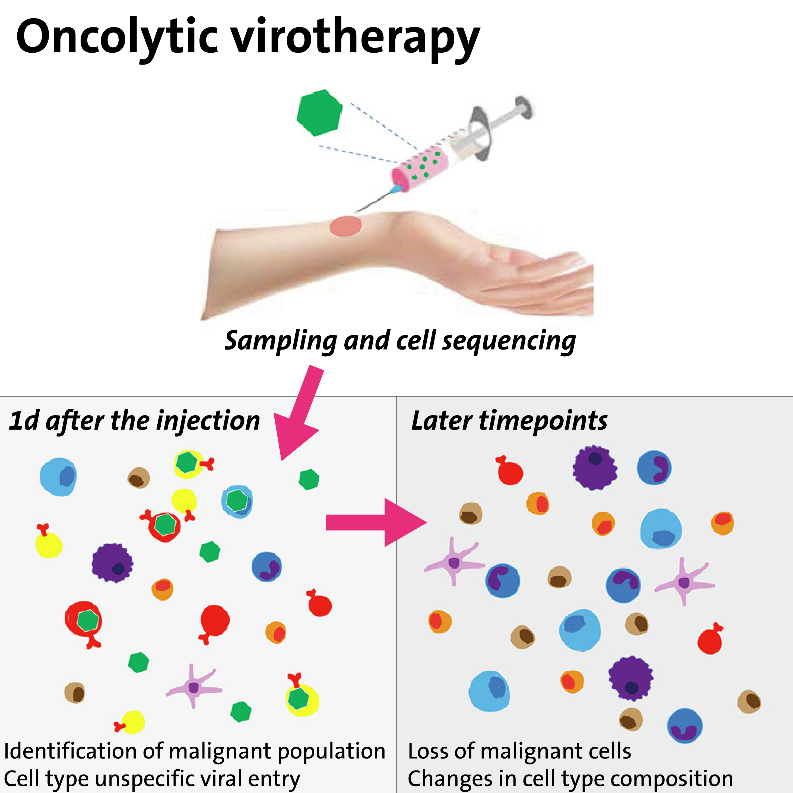www.skintegrity.ch

Talimogene laherparepvec (T-VEC) is a genetically modified herpes simplex 1 virus (HSV-1) approved for cancer therapy. A team of SKINTEGRITY.CH researchers and colleagues investigated its effect on the clinical, histological, single-cell transcriptomic, and immune repertoire level using repeated fine-needle aspirates (FNAs) of injected and noninjected lesions in primary cutaneous B cell lymphoma (pCBCL). Oncolytic virotherapy resultd in a rapid eradication of malignant cells. It also lead to interferon pathway activation and early influx of natural killer cells, monocytes, and dendritic cells. These events were followed by enrichment in cytotoxic T cells and a decrease of regulatory T cells in injected and noninjected lesions.
From: Ramelyte, E., Tastanova, A., Balázs, Z., Ignatova, D., Turko, P., Menzel, U., Guenova, E., Beisel, C., Krauthammer, M., Levesque, M. P., & Dummer, R. (2021). Oncolytic virotherapy-mediated anti-tumor response: a single-cell perspective. Cancer Cell, 39(3), 394-406. https://doi.org/10.1016/j.ccell.2020.12.022 (Authors in bold are SKINTEGRITY.CH Principal or Young Investigators)
